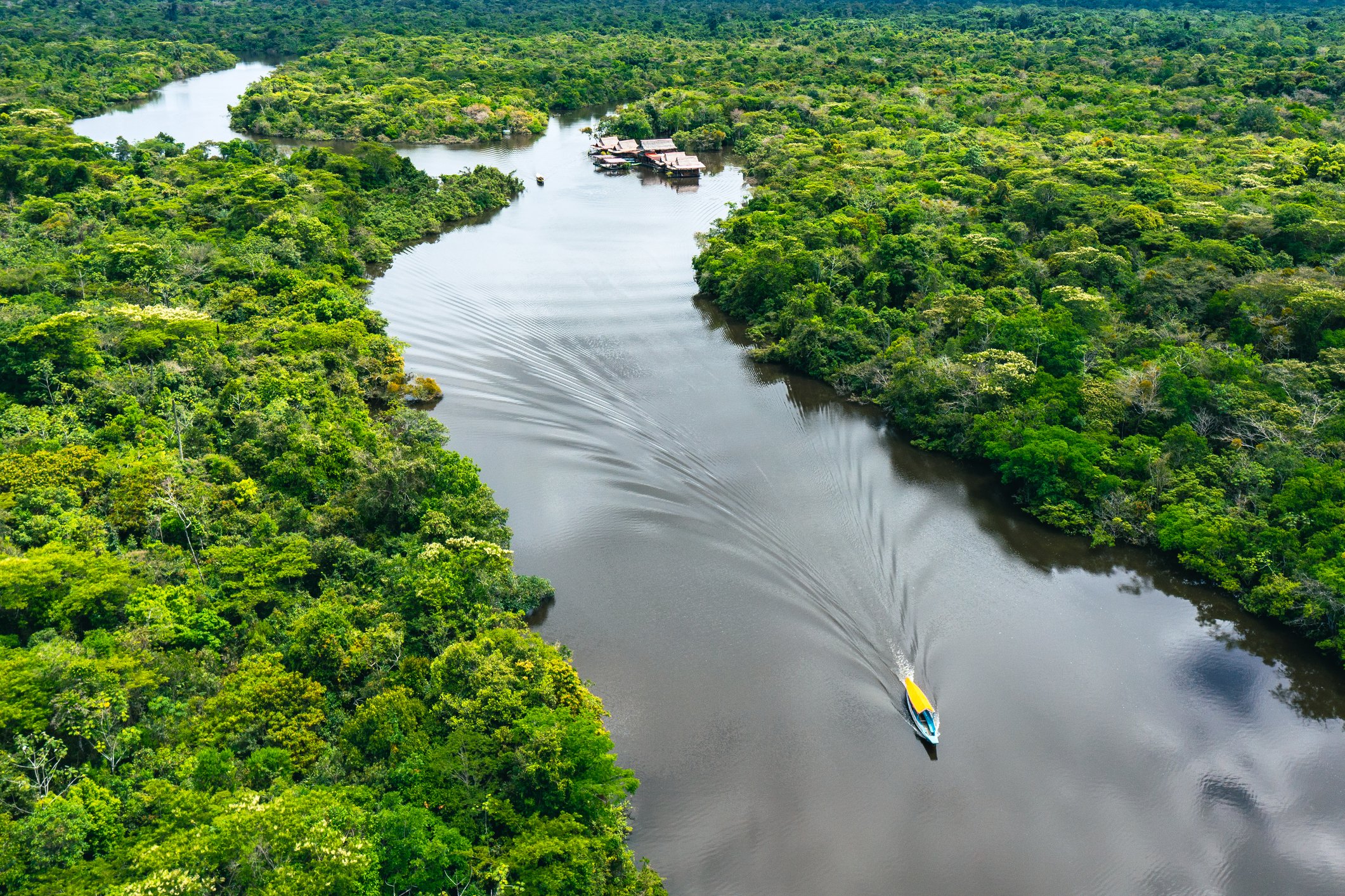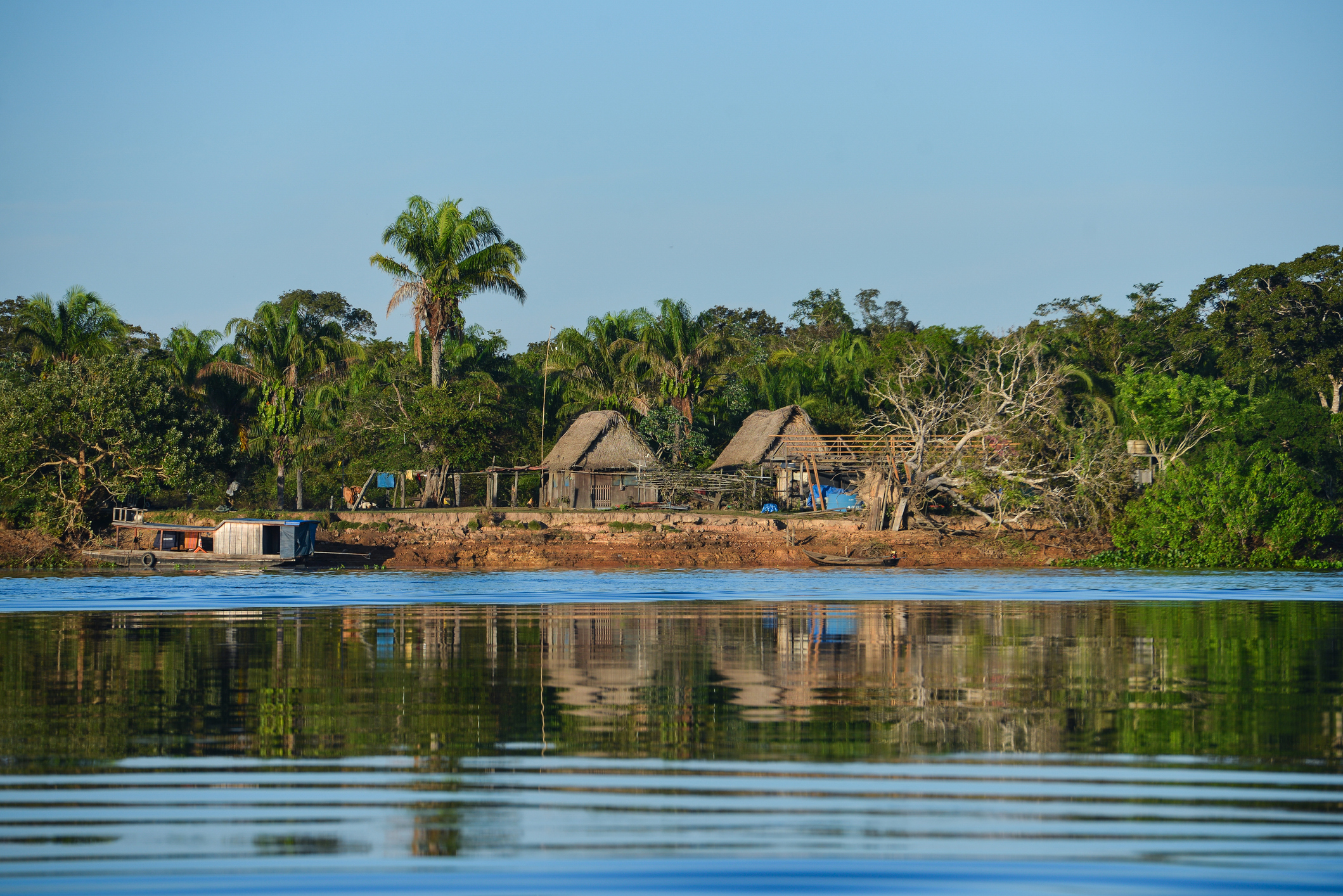
How do we work?
Strategic areas
NICFI’s overall goal is to contribute to the reduction and reversal of tropical forest loss to enable a stable climate, preserved biodiversity and sustainable development. To succeed, we must forge a new relationship between humans and nature. We need to transform the world’s food system and the global trade of commodities.
With international support, tropical forest countries must improve the use of their lands and build a prosperous rural economy without deforestation. Meanwhile, global commodity markets that currently drive deforestation must support their efforts by increasing demand for sustainable products.
NICFI can only succeed as part of a global movement that brings together governments, businesses, indigenous peoples and civil society. Our mandate is to be ambitious and take calculated risks. Not all partnerships will succeed, but the portfolio as a whole will deliver breakthroughs.
Strategic Areas
Land use policies
1 OF 7 STRATEGIC AREAS
To reduce forest destruction while increasing production of food and commodities and meet national development goals, developing forest countries are enacting important reforms to improve land use governance. The good news is that most forest countries have significant potential for improved land management by making available areas outside of forests for new investments and by increasing yields on existing farms. Deforestation is rarely in the national or even local societal interest.
NICFI STRATEGY
NICFI is perhaps most known for its large results-based bilateral partnership with the key forest countries, where we disburse payments for reduced deforestation verified by satellite imagery. The lion’s share of our budget, diplomatic effort and human resources continue to go to such partnerships. Paying for results reduces the risk to Norwegian taxpayers – we only pay where we have a successful and committed partner. It is also targeted at the key result, and less politically intrusive, ensuring the ownership and sovereignty of our partner country. Beyond results-based partnerships, NICFI also supports capacity building efforts and improved land use policies through multilateral channels and civil society partners.
Click here for more information on our bilateral partnerships.

Indigenous peoples and local communities’ rights and role as forest guardians
2 OF 7 STRATEGIC AREAS
Indigenous Peoples and local communities managing tropical forests have stated that there are five necessary conditions for them to continue protecting the world’s tropical forests:
1) An end to the violence, criminalization, and murder of Indigenous Peoples
2) Recognition and enforcement of legitimate territorial rights
3) Direct access to climate finance
4) Full respect of their right to free, prior and informed consent
5) Incorporation of traditional knowledge in climate change strategies
At the climate summit in Glasgow in 2021, parties committed to end deforestation by 2030, and recognized how Indigenous Peoples and local communities are key to achieve this goal. In Glasgow, Prime Minister Støre, along with a number of other donors, pledged 1,7 billion USD to secure land and resource rights of indigenous peoples and other forest dependent communities, including by channelling more funds directly to indigenous peoples and local communities organizations and their funds for territorial management. The donors behind the pledge also committed to monitor and report on spending and cooperation with indigenous peoples and local communities’ organizations in this effort. Also in extension of the pledges made at CoP26, a number of countries committed to pursue action at political level through the high ambition coalition Forest and Climate Leaders Partnership. Norway co-leads the Action Area for Supporting Indigenous Peoples and Local Communties under this partnership Peru and Norway to advance global partnerships with indigenous peoples and local communities – NICFI.
NICFI STRATEGY
Beyond support to government efforts to protect Indigenous Peoples’ rights and livelihoods, NICFI works to give Indigenous Peoples and other forest dependent communities a voice in the international community, in the global climate negotiations and at the national and local level. Specifically we support:
- UN Human Rights Council resolutions to protect environmental human rights defenders.
- Programs to secure land and forest tenure rights for indigenous peoples and local communities in partner countries and beyond.
- In extension of the Norwegian Government’s policy on indigenous peoples and minorities in Norway, we work closely with the Saami Parliament and the Saami Council, to support Indigenous Peoples’ active participation in global biodiversity and climate talks
- The participation of Indigenous Peoples and local communities in national policy processes and in decisions that affect them, such as National Biodiversity Strategy and Action Plans and Nationally Determined Contributions to the Paris Agreement
- Participation of indigenous peoples and local communities in tropical forest countries efforts to access climate finance to end deforestation.
- Donor coordination towards more direct support to indigenous peoples and local communities and efforts by tropical forest countries to scale up tenure reform and protect environmental human rights defenders more effectively.
Carbon Markets and International Support Structures
3 OF 7 STRATEGIC AREAS
While reducing forest loss is in the national interest of forest countries, international support can help them do more, faster. Reduced emissions are also a global good. Mobilizing large-scale climate finance for reduced deforestation has therefore been a key priority for NICFI since the beginning in 2008.
The concept of “REDD+” – international payments for reduced deforestation and forest degradation – was included in the UN climate agreement from 2010, and later through the “Warsaw framework for REDD+”. In 2015 it was thoroughly highlighted in the Paris Agreement. Yet so far, the international community has failed to mobilize large scale high quality carbon markets and other finance that could provide an effective incentive to forest countries. This must change.
NICFI STRATEGY
After reaching agreement on the broad norms for forest carbon payments through the UN and piloting such payments bilaterally and multilaterally through the World Bank, the time is now ripe for standardization and scale. Scale can come from new regulated carbon markets such as that for international aviation, or from voluntary carbon purchasing programs from companies taking on science-based targets to climate neutrality. For this to be an efficient and impactful mechanism to reduce forest loss, it needs to be done according to the highest environmental and social standards. To this end, NICFI helped support the launch of two important new initiatives in 2019:
The Architecture for REDD+ Transactions (ART), which will certify high-integrity emission reductions from forest countries and jurisdictions.
Emergent, a forest finance facility that will facilitate transactions in credits certified by ART between private carbon buyers and forest countries. To help stimulate demand and supply Emergent will seek payment guarantees from donors.
In addition, in 2021, NICFI, together with the US, UK, and leading companies launched the LEAF Coalition. The Coalition is expected to become one of the largest ever public-private efforts to help protect tropical forests, to the benefit of billions of people depending on them, and to support sustainable development.
Transparency
4 OF 7 STRATEGIC AREAS
Sunlight is the best disinfectant. Most forest destruction starts with a crime. Forest areas have historically been ‘white places on the map’, far from the attention of central authorities or the media. Where governments have had surveillance capacity, enforcement efforts have struggled to reach beyond the poor person with the chainsaw and reach the kingpins behind investing in the operations. Companies committed to buying deforestation-free commodities have not been able to determine who supplied their supplier. Investors and banks have lacked the tools to determine the deforestation risks of their portfolios, and to act on them.
NICFI STRATEGY
NICFI will continue to invest heavily in new technology and transparency solutions:
- Biophysical – knowing where forest destruction occurs:
- Global Forest Watch, which provides free access to satellite pictures showing changes in tree cover in near real time.
- FAO’s SEPAL program, which helps forest countries use satellite data
- The NICFI Satellite Data Program, in collaboration with KSAT, Planet and Airbus, making high-resolution satellite imagery freely available to everyone.
- Ownership – knowing who owns the land/concession:
- Various efforts with governments and civil society to promote transparency around forest concessions and determine the ultimate beneficial ownership of the concessions.
- Commercial – who buys from whom:
- TRASE, which uses customs data to track supplier relationships and geographical sourcing, allowing purchasers and financiers to determine deforestation risk and act on it.
- Voluntary firm level disclosure schemes, such as CDP and Accountability Framework Initiative.
- Finance – knowing who finances whom:
Deforestation-free Commodity Markets
5 OF 7 STRATEGIC AREAS
Just as a consumer would not be happy having 30% of his or her food produced by slaves, consumers around the world are increasingly expecting that their products are completely free of rainforest destruction. Eliminating deforestation from commodity supply chains will require determined and consistent market signals from consumers, supermarkets and commodity traders, combined with public land use policies that enable sufficient growth in production outside of forests.
In the New York Declaration on Forest in 2014, companies, governments and civils society comitted to work together to halt deforestation.The pledge has delivered important successes such as the Amazon soy moratorium and the significant reduction in deforestation from oil palm in Indonesia. Some companies are putting pressure on suppliers to meet their goals. Overall, however, progress has been too slow.
To strengthen supply chain action, leading companies of the Consumer Goods Forum has established a dedicated “Coalition of Action” with clear short term milestones towards deforestation free production.
NICFI STRATEGY
- Supporting on-the-ground efforts to facilitate deforestation free landscapes
- Providing risk capital to demonstrate deforestation-free business models and leverage private investments in these.
- Promoting dialogue between supply chain actors through the Tropical Forest Alliance to solve complex interlinked challenges
- Supporting civil society strategies to hold companies to account

Deforestation-free Financial Markets
6 OF 7 STRATEGIC AREAS
Today, it is hard to invest your savings or pensions without contributing to deforestation. With the exception of important front-runners, global finance has not taken sufficient account of the environmental damage and financial risks associated with deforestation. Even committed financiers have lacked access to credible and standardized data to be able to address deforestation risk.
Overall, forest destruction has not been understood as a material financial risk. But in a low carbon future there is no room for deforestation related emissions. A license to clear intact rainforests should be considered a ‘stranded asset’ similar to a new coal plant that would not be profitable in a policy environment aligned with the Paris Agreement.
NICFI STRATEGY
- Support access to – and standardization of – data useable for investors
- Create awareness of deforestation as a material financial risk at both company systemic level.
- Promote voluntary forest risk disclosures through CDP
- Support the Task Force of Climate Related Financial Disclosures (TCFD)in developing guidance and practice for companies to report on deforestation risk throughout their supply chain
- Build capacity of local banks in key forest countries

International Forest Crime
7 OF 7 STRATEGIC AREAS
Illegal logging and trade in tropical timber is one of the world´s most lucrative criminal industries. The perpetrators – typically large, trans-national criminal networks – are involved in crimes such as corruption, money laundering and tax evasion, as well as violations of the rights of indigenous and local communities. They undermine governance, rights and entire economies.
Fighting forest crime is primarily the responsibility of forest country governments, and we support their efforts directly through bilateral partnerships. However, it should also be addressed by the markets where timber and timber products are processed and sold. Increased collaboration among enforcement agencies of producer and consuming countries can enhance national efforts.
Transparency and public access to information about concessions, land ownership and financial flows are vital for bringing these crimes into the public light. Civil society plays an important role in exposing and reporting on corruption and illegalities in the forest sector.
NICFI STRATEGY
- Through bilateral partnerships support forest countries’ monitoring and law enforcement efforts to address illegal forest destruction
- Detect and act on international forest crimes in collaboration with the UN Office on Drugs and Crime
- Promote international collaboration between law enforcement agencies through support to Interpol
- Assist the Nature Crime Alliance achieve its goals of raising political will, increasing financial support, and strengthening the operational capacity of law enforcement, civil society and private sector to fight organised nature crime.
- Support civil society to provide transparency and accountability as well as new technologies to trace legality of forest products
